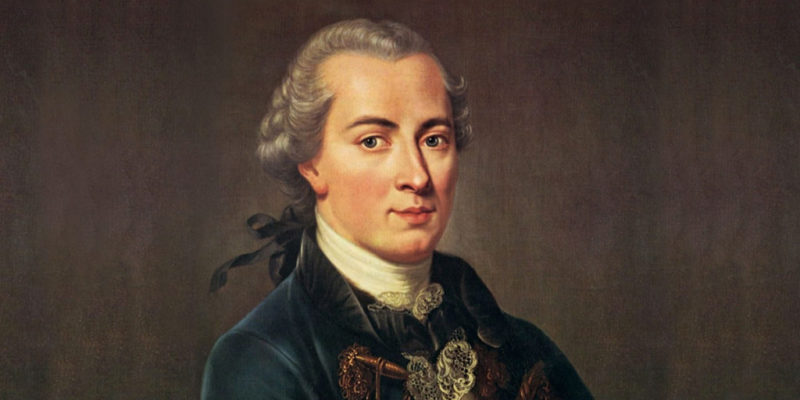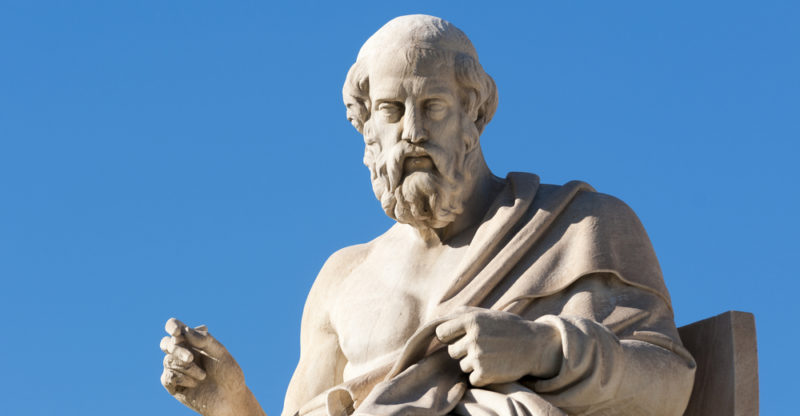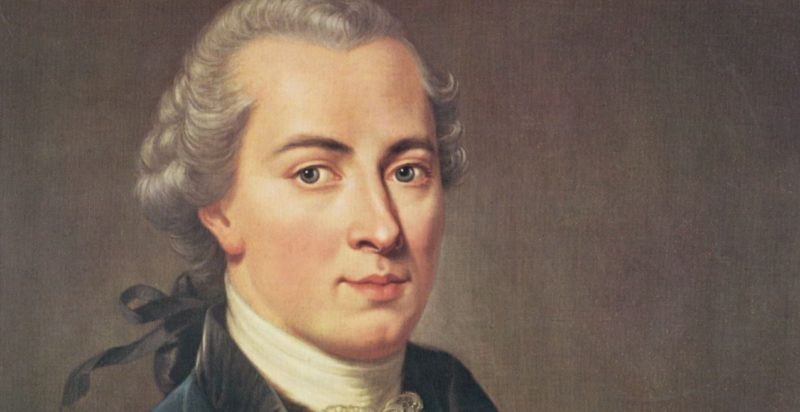We explain what idealism is, its classification and major representatives. In addition, we explore its main characteristics and criticisms.

What is idealism?
Idealism is the set of philosophical theories that assert the ontological and gnoseological primacy of ideas. This means that ideas have autonomous existence, are a higher form of reality than physical objects and furthermore, they are a more perfect way to access knowledge.
From the contrast between idealism and the sensible world it often follows that idealism opposes materialism. While it is true that for materialism there is only the physical and tangible world, it would be inaccurate to state that idealism denies the physical world. In fact, certain forms of idealism, such as Kantian idealism, presuppose the existence of the physical world, since they aim to get at the way we know the world and not its existence.
Idealism is a long-standing school of philosophy that spans (in its different forms) a wide range of philosophers as distant in time as Plato, Berkeley, Descartes, Leibniz and Immanuel Kant.
However and despite their differences, all forms of idealism agree that in order to get at the truth of things (and fully understand them), we must rely on ideas rather than on material-sensible objects.
- See also: Nihilism
Etymology and history of idealism
The word "idealism" comes via Latin idea, which in turn comes from the Ancient Greek idein (ἰδεῖν), meaning "to see". The first philosopher to use the term idealism to refer to the metaphysical stance was German thinker Christian Wolff (1679-1754), who lived in the late 17th and early 18th centuries. Wolff used the term to refer to the belief that reality is made up of ideas.
In philosophical terms, the word idealist is used for any ontological doctrine (regarding being in general) which holds that true reality is intangible or cannot be experienced. According to this definition, Plato's doctrine of the two worlds can be understood as the predecessor of idealism as has been known since modernity. For Plato, the physical or material reality is nothing but a degraded and imperfect copy of the world of ideas, which is unchangeable, eternal and perfect.
Platonic idealism was succeeded by Neoplatonism, a school of thought that developed between the 1st and 5th centuries. Both Platonism and Neoplatonism are forms of transcendental idealism, as they hold that true reality lies beyond the reach of the physical world, on a plane of existence that is only partially accessible through the intellect or "nôus" (as it is called in Ancient Greek). Some scholars, however, suggest that the original Platonic idealism can be understood as metaphysical dualism through its Two Worlds theory or, in any case, as a certain form of objective idealism.
Christianity as a system of thought is also a form of idealism. This is due to the Neoplatonic influence of thinkers such as Plotinus (205-270) and Porphyry (232-304), later taken up in the work of Augustine of Hippo (354-430). Some centuries later, German thinker Hermann Lotze (1817-1881) wrote theological treatises based on the same ideas as Saint Augustine.
The early modern period gave way to different forms of idealism whose theory and doctrine was mainly developed by German thinkers. Examples of these include Leibniz, Kant, Hegel, Bolzano, Fichte, Mach, Cassirer and Schelling. Other forms of idealism can be found in the works of other modern thinkers such as George Berkeley and Descartes, each with their own distinctive characteristics.
Main characteristics of idealism
Broadly speaking, idealism holds that ideas constitute the only or the most perfect reality, depending on the type of idealism adhered to. At the same time, it is only the mind (and in some cases the spirit) that has access to this unique and true reality.
From an epistemological standpoint, it presupposes the existence of a mentally-constructed world, independent of the ideal one. The difference lies in the fact that we can only know it through the intellect. This explains why a thinker like Berkeley, for example, held that there exists only what is perceived by the subject and, at the same time, why Kant abandoned any claim to get at what things in themselves are.
Another common trait to all forms of idealism is the view that ideas, consciousness, spirit or the intellect are higher forms of perfection than the physical world. The latter is generally regarded as a copy or degradation of the ideal world. In some cases, it is considered but a mere projection or mental contruct.
Types of idealism and their representatives
Platonic idealism

Also called "Platonic realism", Platonic idealism originates from the writings of Ancient Greek philosopher Plato (427-347 BC), a disciple of Socrates and a teacher of Aristotle. In his Republic and other Platonic dialogues, he posits the existence of universals: objects of a more perfect and abstract nature than physical objects. These objects are metaphysical and eternal in nature, and are in another plane of existence different from the physical world, which is only accessible through philosophical intellection.
The human being does not have access to universals through any of the senses but can conceive and grasp them. Unlike universals, particulars are perfectly tangible. They are the objects around us, which constitute a copy of the original universal form, that is, a copy of ideas.
Objective idealism
Objective idealism is a variant of idealism, long after Plato, which asserts that ideas exist in themselves and can only be accessed through experience.
It gets its name through its closeness to scientific logic, initially grounded in the same conception of reality as something that can be attained through experience.
Subjective idealism
Subjective idealism holds that ideas exist in the mind; it therefore follows that there is no mind-independent world. This school of thought has two variants:
- Radical subjective idealism. Proponents of this stance assert that subjectivity is what constructs the world; consequently, reality completely depends upon the mind that perceives it; the physical world only exists as long as one perceives it.
- Moderate subjective idealism. Proponents of this stance assert that perception of the real varies according to mental content; consequently, the real exists to the extent that one perceives it, despite having a certain existence of its own.
German Idealism
German idealism emerged as the German objective idealist school of philosophy in the late 18th and early 19th centuries. Its foremost exponent was Prussian thinker Immanuel Kant, though it is possible to trace back influences in Romanticism, the Enlightenment and the European historical context after the Napoleonic Wars.
According to Kant, while the physical world exists, it is not wholly cognizable to man, which is why Kant is regarded both as a materialist and an idealist. For Kant, we do not have access to the “thing-in-itself” (what he calls the "noumenon"). Instead, the objects of experience, which hypothetically originate from the noumenon, are called "phenomena" and are the result of an intellectual unification process that applies to the sensible multiplicity perceived by the senses.
Other proponents of German idealism were Fichte (1762-1814), Schelling (1775-1854) and Hegel (1770-1831), all of whom built upon Kant's revolutionary works.
Transcendental idealism

Transcendental idealism, also called "transcendental subjectivism," is the name Immanuel Kant gave to his own doctrine of thought. In his magnum opus, Critique of Pure Reason, Kant summarized the core of his philosophy by asserting that "Thoughts without content are empty; intuitions without concepts are blind", meaning that both concepts are interdependent for the knowledge of anything.
Thus, objects are the result of the combined work of sensibility (through “a priori knowledge” by the noumenon) and reason (which applies different categories of "a posteriori knowledge" from the subject to unify the sensible multiplicity perceived).
References
- Allison, H. E. (1992). El idealismo trascendental de Kant: una interpretación y defensa (Vol. 40). Anthropos Editorial.
- Von Schelling, F. W. J. (2005). Sistema del idealismo trascendental (Vol. 14). Anthropos Editorial.
- Dunham, J., Grant, I. H., & Watson, S. (2014). Idealism: The history of a philosophy. Routledge.
- Ameriks, K. (Ed.). (2017). The Cambridge companion to German idealism. Cambridge University Press.
Related articles:
Was this information useful to you?
Yes NoThank you for visiting us :)